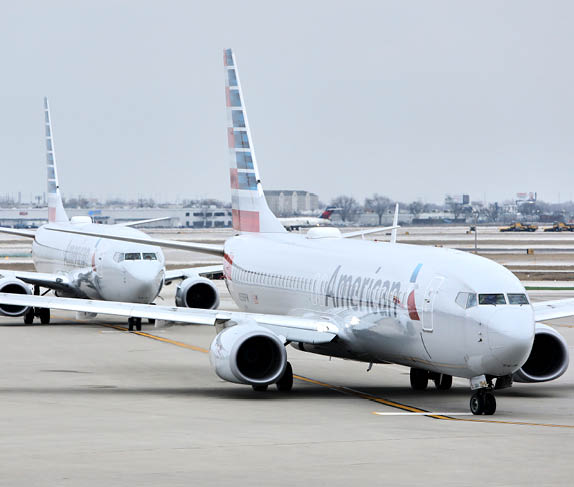The US Air Force has announced a partnership with Twelve to develop carbon transformation, which
turns carbon dioxide from the air into jet fuel.
In 2020, Air Force Operational Energy endorsed Twelve to launch a pilot program to demonstrate that their proprietary technology could convert CO2 into operationally viable aviation fuel called E-Jet.
The project hit a major milestone in August of this year when Twelve successfully produced jet fuel from CO2, proving the process worked and setting up the conditions to create the synthetic carbon-neutral fuel in larger quantities. The first phase of the project is scheduled to conclude in December with a report detailing the process and findings.
The Air Force believes the implications of this innovation could be profound. Initial testing shows that the system is highly deployable and scalable.
Twelve’s carbon transformation platform could allow deployed units to create fuel on demand, without the need for highly skilled fuel experts on site.
“With carbon transformation, we are untethering aviation from petroleum supply chains. The Air Force has been a strong partner in our work to advance innovative new sources of aviation fuel,” said Nicholas Flanders, Twelve co-founder and CEO.
Most synthetic fuels, which are created by a mix of carbon monoxide and hydrogen known as syngas, are produced through burning biomass, coal, or natural gas. Twelve’s technology eliminates the need for fossil fuels, producing syngas by recycling CO2 captured from the air and – using only water and renewable power as inputs – transforming the CO2.
The process of converting syngas into liquid hydrocarbon fuels is not new. Known as Fischer-Tropsch synthesis, the multistep method was created in the 1920s by German scientists and aided the German war effort during World War II.
Today, it is widely used to produce liquid fuels for transportation. Fischer-Tropsch certified synthetic fuels are approved as a ‘drop-in’ fuel for each specific aircraft, first commercially, and then by the U.S. military and the aircraft’s associated system program office. The highest blend currently certified is a 50/50 blend of FT synthetic fuel and petroleum fuel. Twelve’s system produced FT-Synthetic Paraffinic Kerosene, which can be blended with petroleum – up to a maximum blend of 50%.
Once the first phase of the program concludes at the end of 2021, the Air Force Operational Energy office will look to the next phase of scaling the technology to produce synthetic fuel in larger quantities.
While there remain a number of unanswered questions to make this technology operational, such as how to power the production of the syngas in remote areas and where water sources for the necessary hydrogen will come from (Twelve notes that water for the process can also be captured from the air), the team sees this is a positive first step in a truly innovative program.
“My office is looking at a number of initiatives to not only optimize aviation fuel use for improved combat capability, but to reduce the logistics burden as well,” Guerrero said. “We’re excited about the potential of carbon transformation to support this effort and Twelve’s technology – as one of the tools in our toolbox – could help us get there.”
Twelve is not the only carbon transformation working to develop sustainable aviation fuel. American Airlines has agreed to terms to purchase carbon-neutral SAF produced by Prometheus Fuels, which uses a novel process to make net-zero carbon transportation fuels. While direct air capture firms Climeworks, Carbon Engineering in Canada and US-based Global Thermostat are also producing the SAF using the same process.
Earlier this month, Prometheus Fuels signed an agreement with Transcend Air Corporation to provide with Sustainable Aviation Fuel (SAF).
“We are extremely excited about partnering with Prometheus because it will provide us with zero net carbon operations, at an excellent price, opening an entirely new path to a sustainable future for aviation,” said Gregory Bruell, Co-Founder and CEO of Transcend Air.
Rob McGinnis, CEO of Prometheus, said, “VTOL aircraft have the potential to radically redefine urban transport. We look forward to supplying Transcend Air with our zero net carbon jet fuel so that this new and exciting era of increased mobility can be 100% carbon neutral.”
Bruell elaborated, “Our ART service will offer lower door-to-door costs than taking an airline, cut travel time by over two-thirds, provide a comfortable and accessible experience for all, and do it with zero carbon emissions on Prometheus SAF.”

